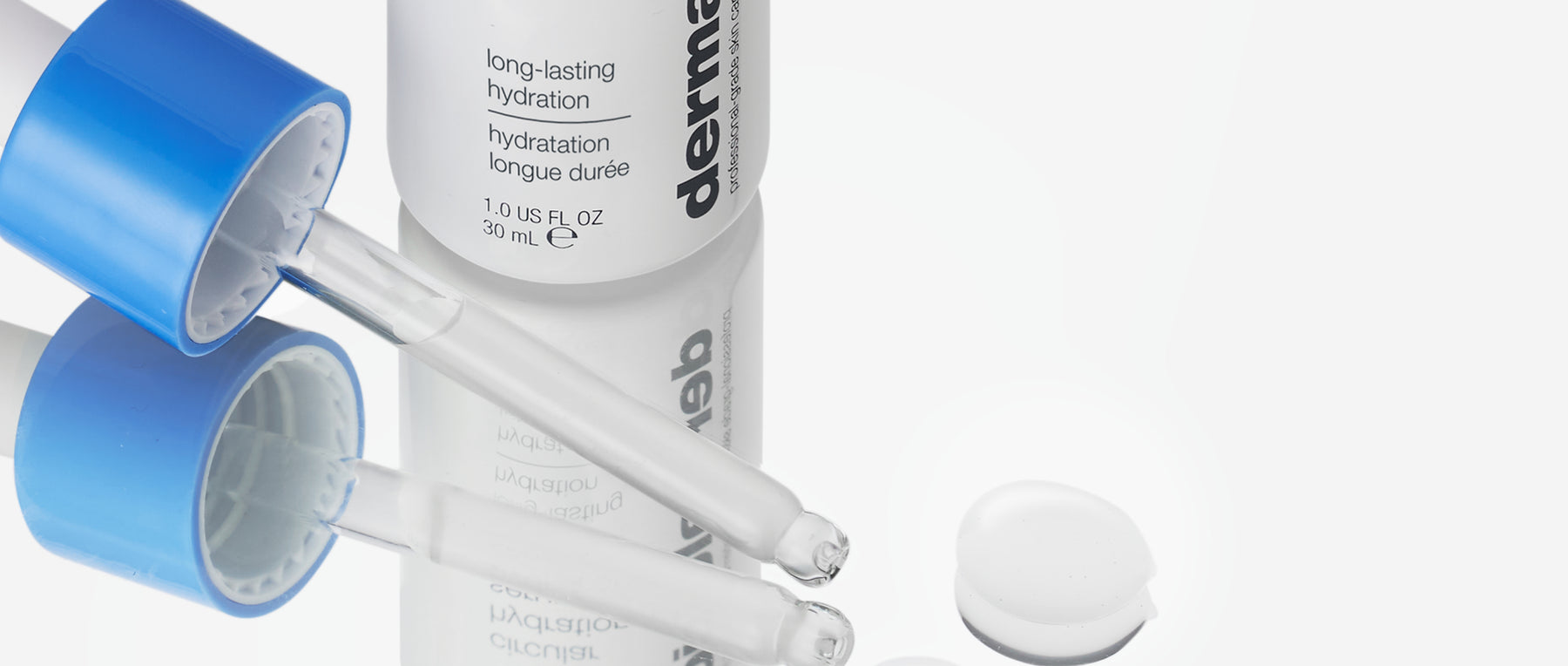4 min read
6 things nobody is telling you about dehydrated skin
Everyone’s skin needs consistent hydration – even if it doesn’t feel dry. Dehydrated skin can lead to redness, irritation, and a compromised barrier.

It doesn’t matter what skin type you have: everyone’s skin is vulnerable to dehydration. This means that all types of skin need extra hydration every day – even when it doesn’t feel dry. Here are our favorite tips for keeping dehydrated skin at bay:
1. seasons change – and so should your routine
Environmental irritants, our rapidly changing climate, busy lifestyles, and many other factors all deplete skin of critical hydration. In short: the environment you’re in affects your skin. Skincare isn’t one size fits all – so when it comes to your routine, you have to pay extra attention to your skin’s needs. What your skin needs can depend on the weather or even if you’re in a big city vs. small town. Look for key changes in your skin, and adapt your routine with the seasons.
2. don’t forget your SPF
The sun can be warm and welcoming; however, UV rays aren’t! Sun damage doesn’t just cause burns or irritation, it also dehydrates skin (even before it burns). Keep skin healthy-looking and hydrated with SPF protection. Mix your moisturizer with SPF and reapply as needed during your time out in the sun. Even if you’re indoors, apply SPF – UV rays can travel through windows!
3. beware of hydration evaporation
Many hydrating serums seem to evaporate into thin air the moment we apply them. In order to effectively manage dehydration and maintain an optimal moisture balance, we want to minimize the amount of hydration evaporation that occurs. To accomplish this, we need skin care products that advance skin’s hydration cycle – minimizing TEWL while also replenishing skin’s hydration, both topically and from within. Trans-Epidermal Water Loss (TEWL) is the evaporation of water from skin’s surface. Skin can lose up to half a liter of hydration through TEWL each day!
4. dehydrated skin’s snowball effect
Forgetting to hydrate can cause a snowball effect – once skin is dehydrated your barrier is compromised, leading to potential redness and irritation. This can be caused by not drinking enough water, forgetting to add a hydrating serum, neglecting to moisturize, or by not being diligent about your SPF. It may be overwhelming at first to keep up with all of these steps, but keep at it: any effort to combat skin dehydration is better than no effort at all!
5. sustain hydration
Hydrating every day helps skin stay better-hydrated in the long run because this will help maintain a healthy barrier. When skin is optimally hydrated, it appears smooth and plump. We typically think of skin’s hydration as coming from topically applied products – but dietary sources and the water we drink throughout the day also have a significant impact on skin’s hydration.
6. ingredients matter
Wasting time and money on the wrong ingredients may leave your skin dehydrated. Make your routine work for you and your skin and learn which ingredients are best for skin hydration.
Here’s a few of our favorite ingredients (and their benefits) for ultimate skin hydration:
• Hyaluronic Acid penetrates skin’s surface for deep hydration and more supple,
radiant skin over time.
• Algae Extract-infused moisturizing matrix delivers quick and long-lasting hydration.
• Polyglutamic Acid from fermented Soy replenishes the skin’s hydration reserves
from within.
• Plant-derived sugars and a blend of amino acids similar to those naturally present in
the skin trap water on the skin’s surface to help prevent future hydration evaporation.
• Lactobacillus Ferment and Avena Extract helps to balance the skin’s microbiome.
7. moisturizer alone isn’t enough
Do you sometimes feel like even after applying moisturizer, your skin still feels dehydrated? You’re not alone! Try adding in a serum. Hydrating serums are formulated to deliver optimal hydration into the skin – but unless that hydration is ‘sealed in’ with a moisturizer, it may evaporate into the environment. Moisturizers’ comparatively heavier formulas sit on top of the skin, forming a barrier that holds hydration in.
As we can see, hydration loss has many sources. Neglecting to replace the skin hydration we lose on a daily basis can lead to dehydrated skin, a compromised barrier, and eventual skin sensitivity. Notice skin dehydration? Try Circular Hydration Serum to flood skin with hydration, replenish from within, and help prevent future hydration evaporation.



